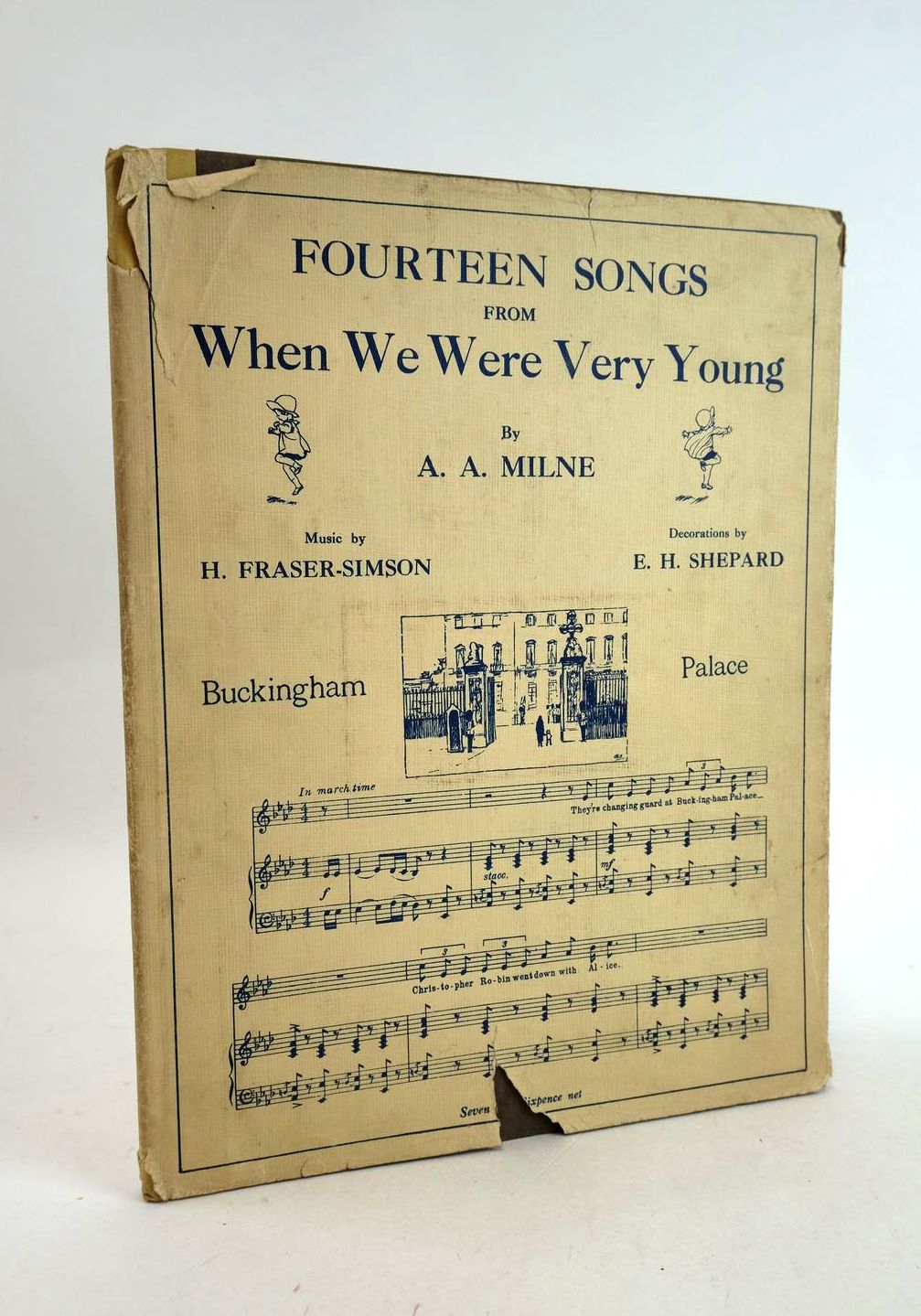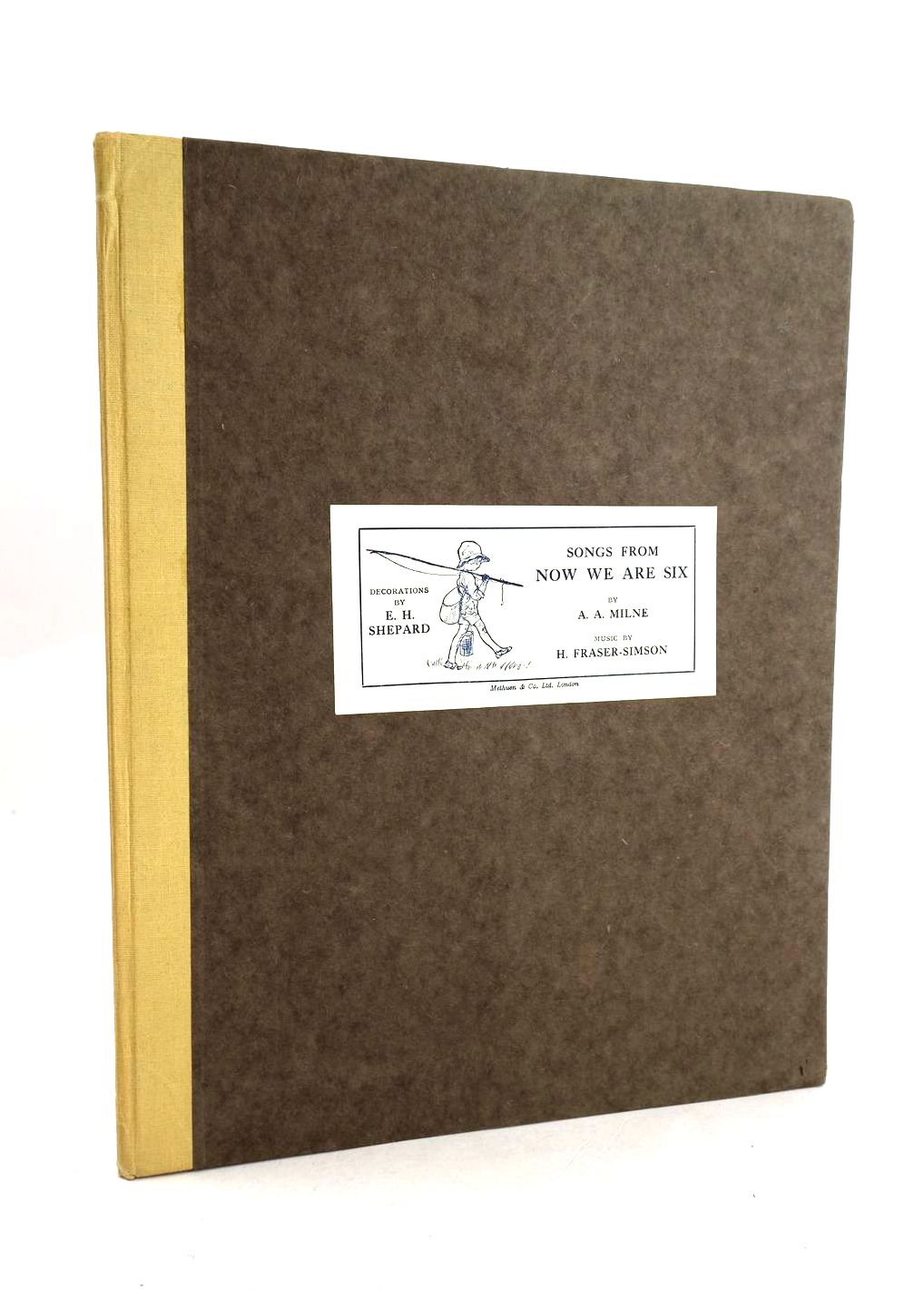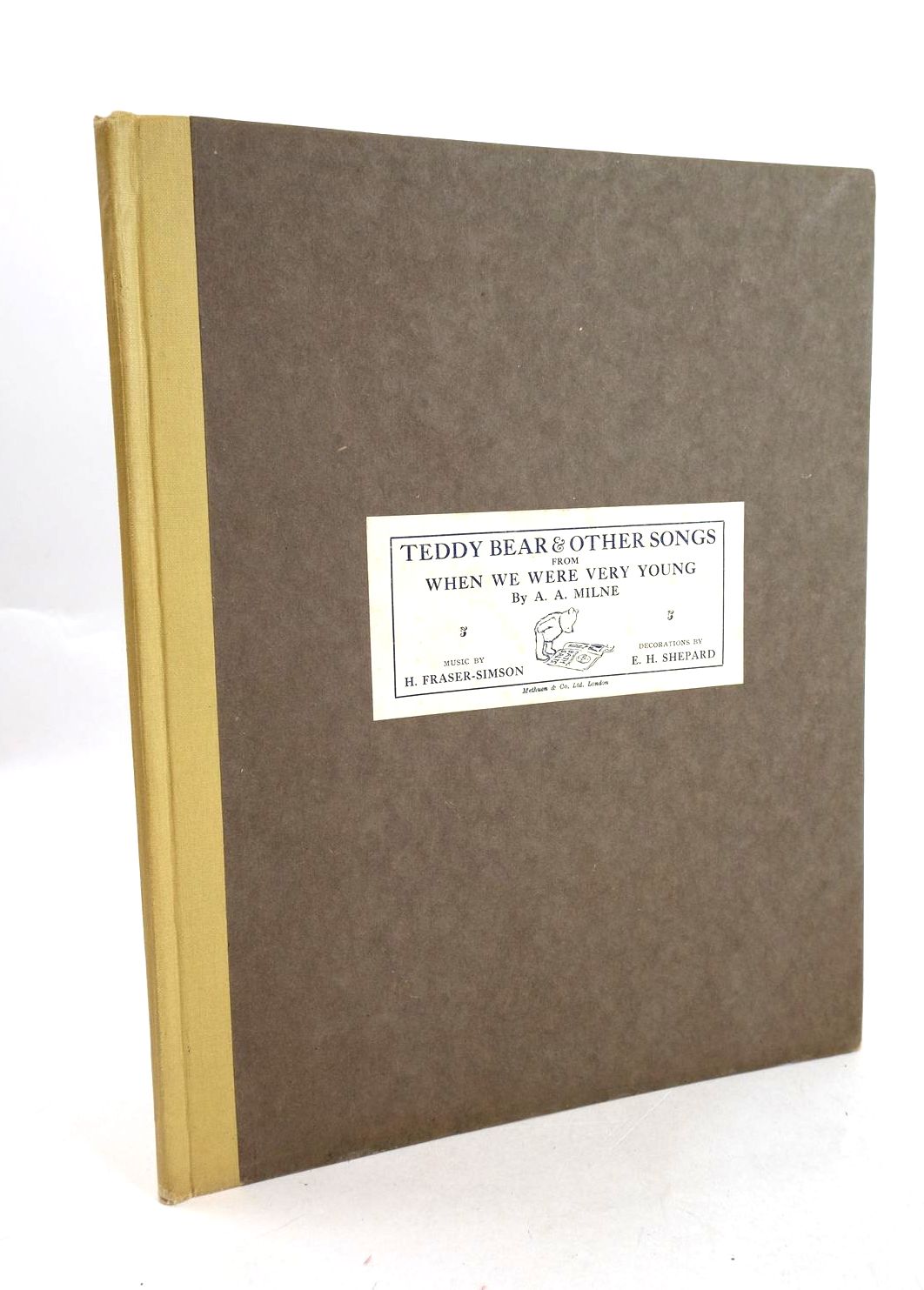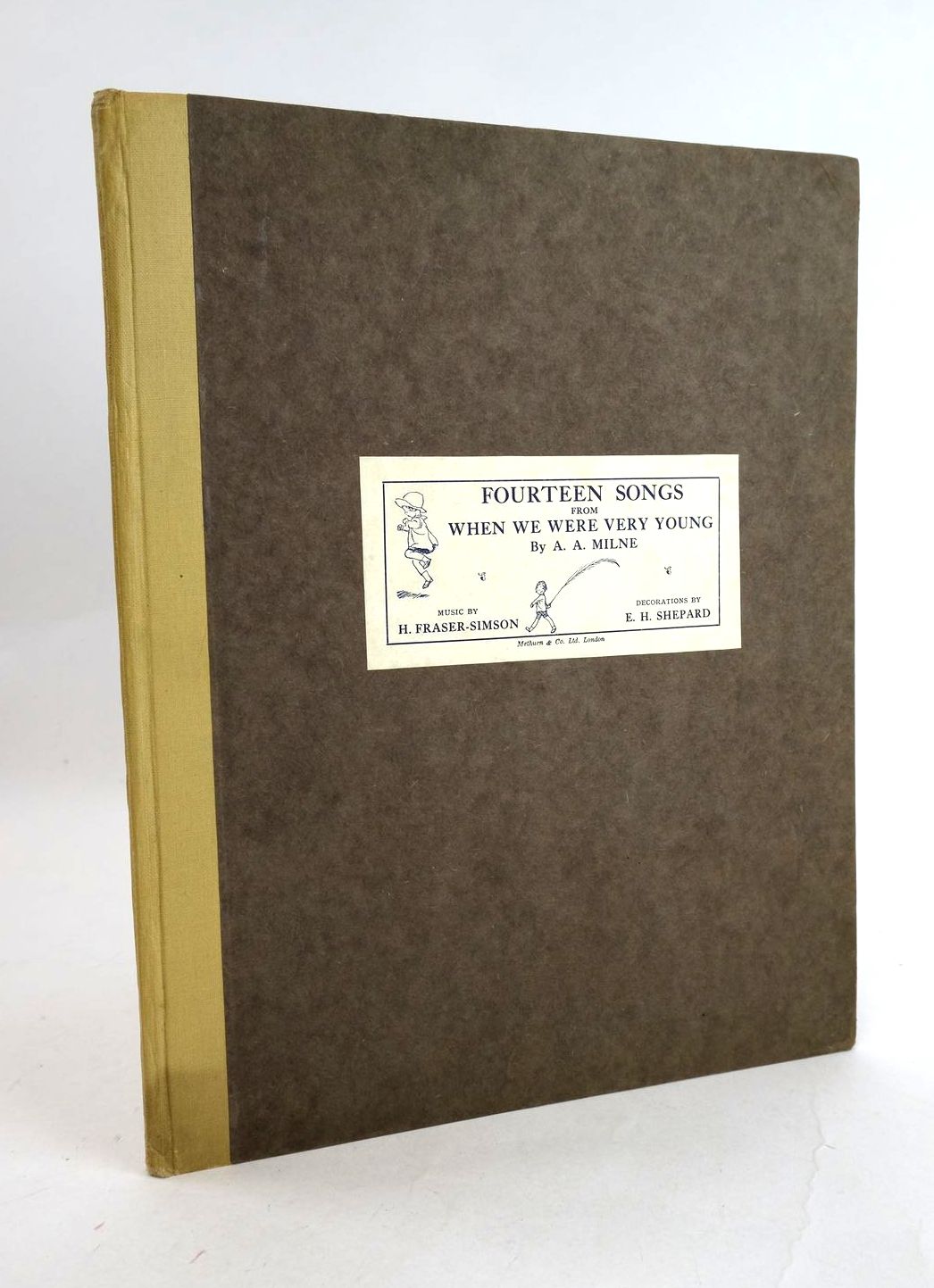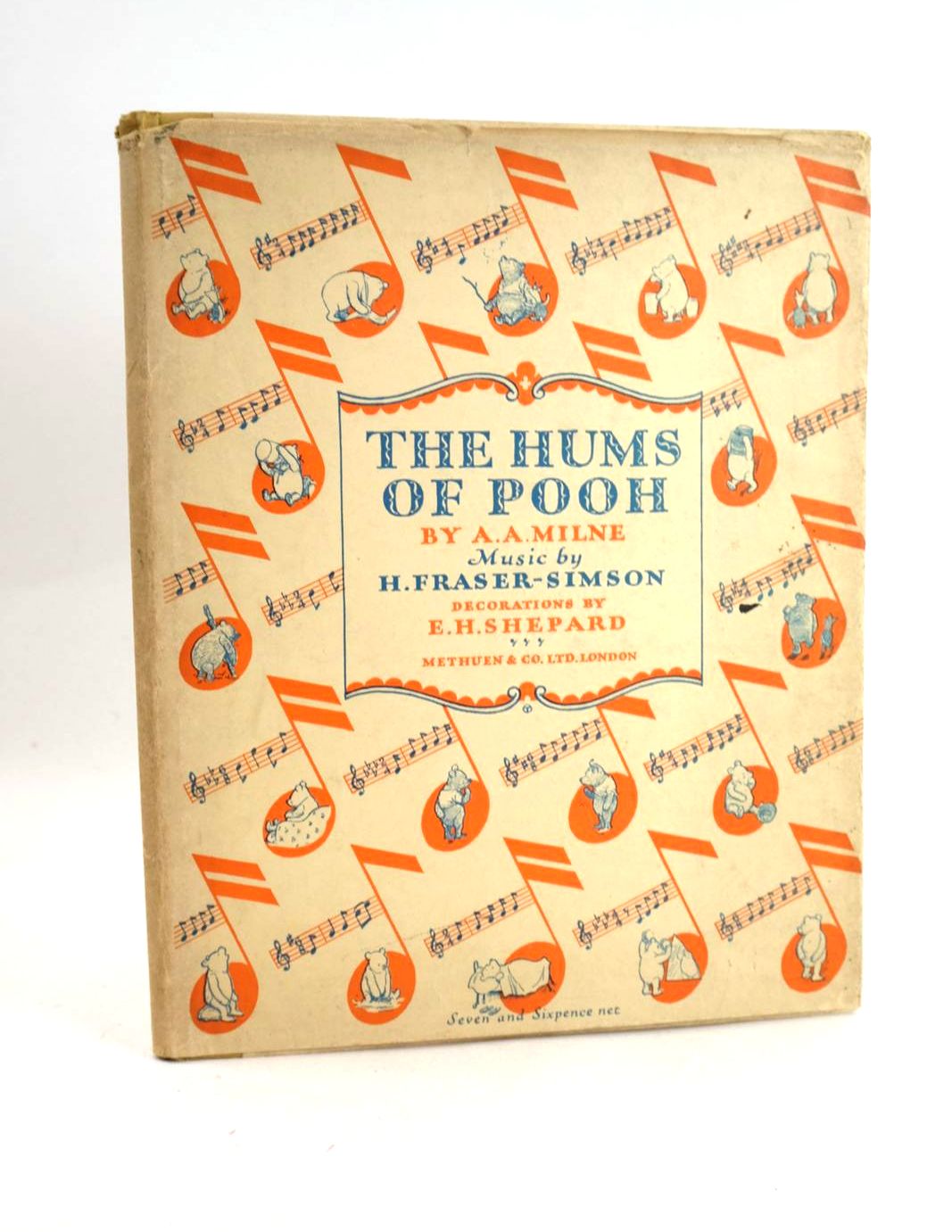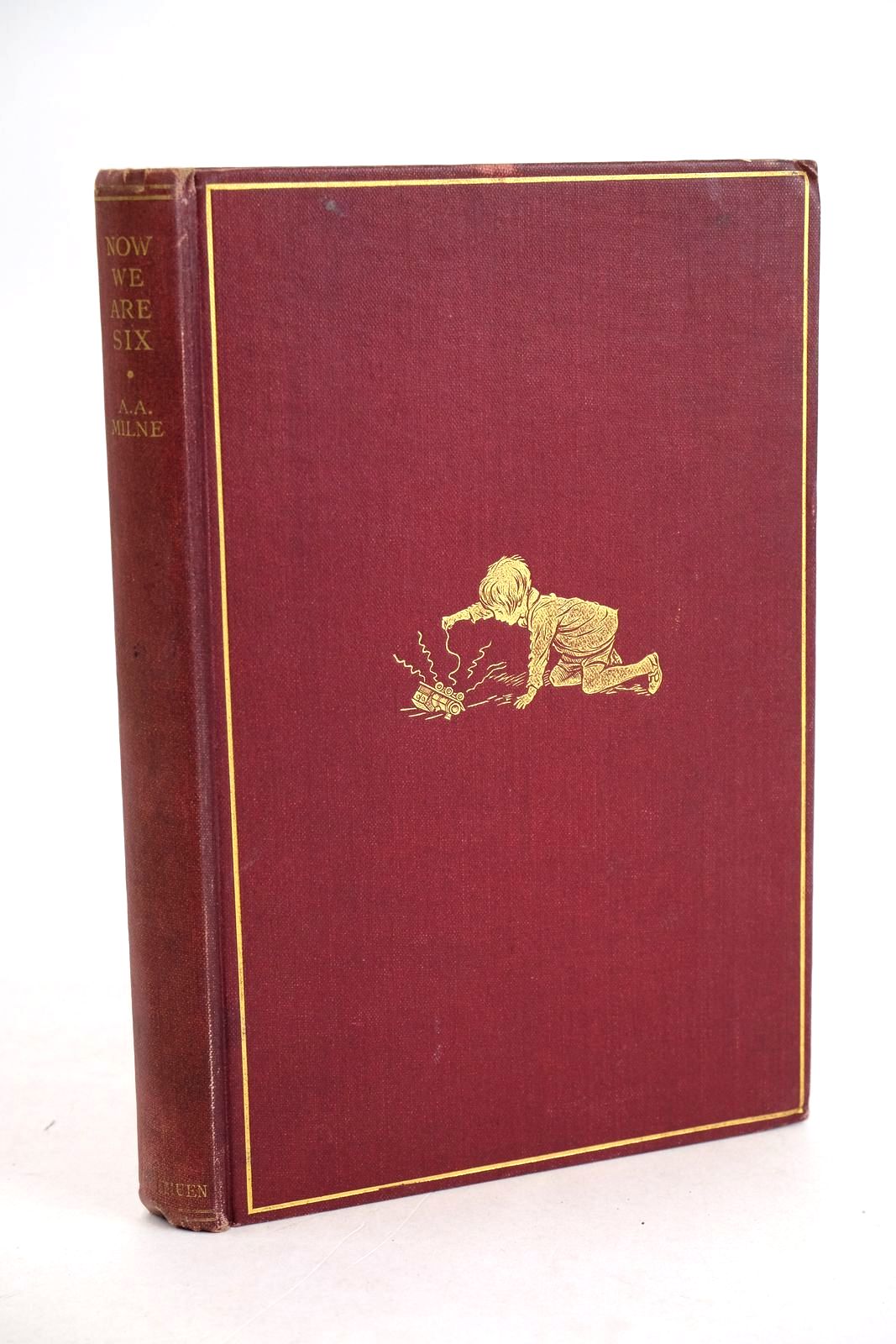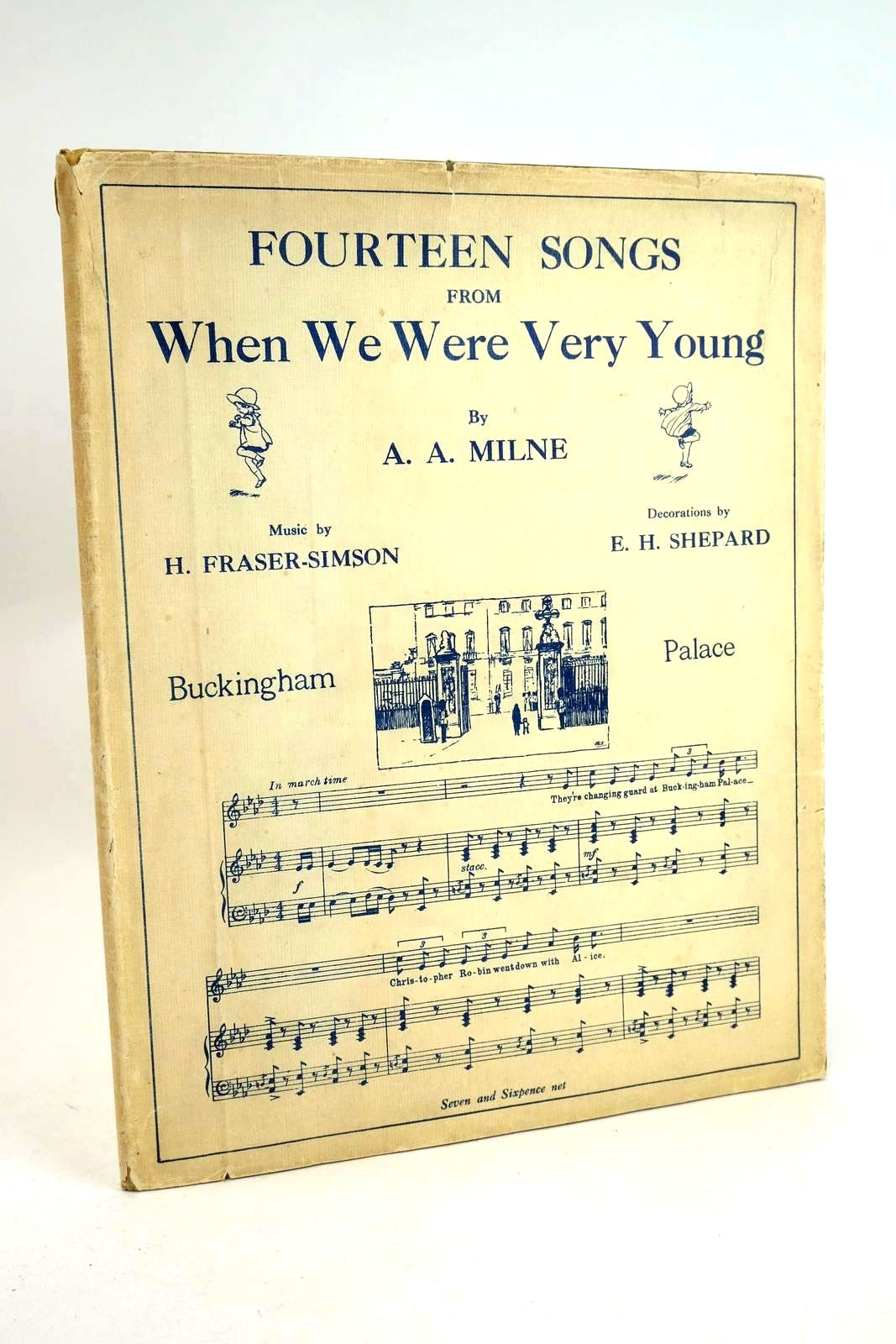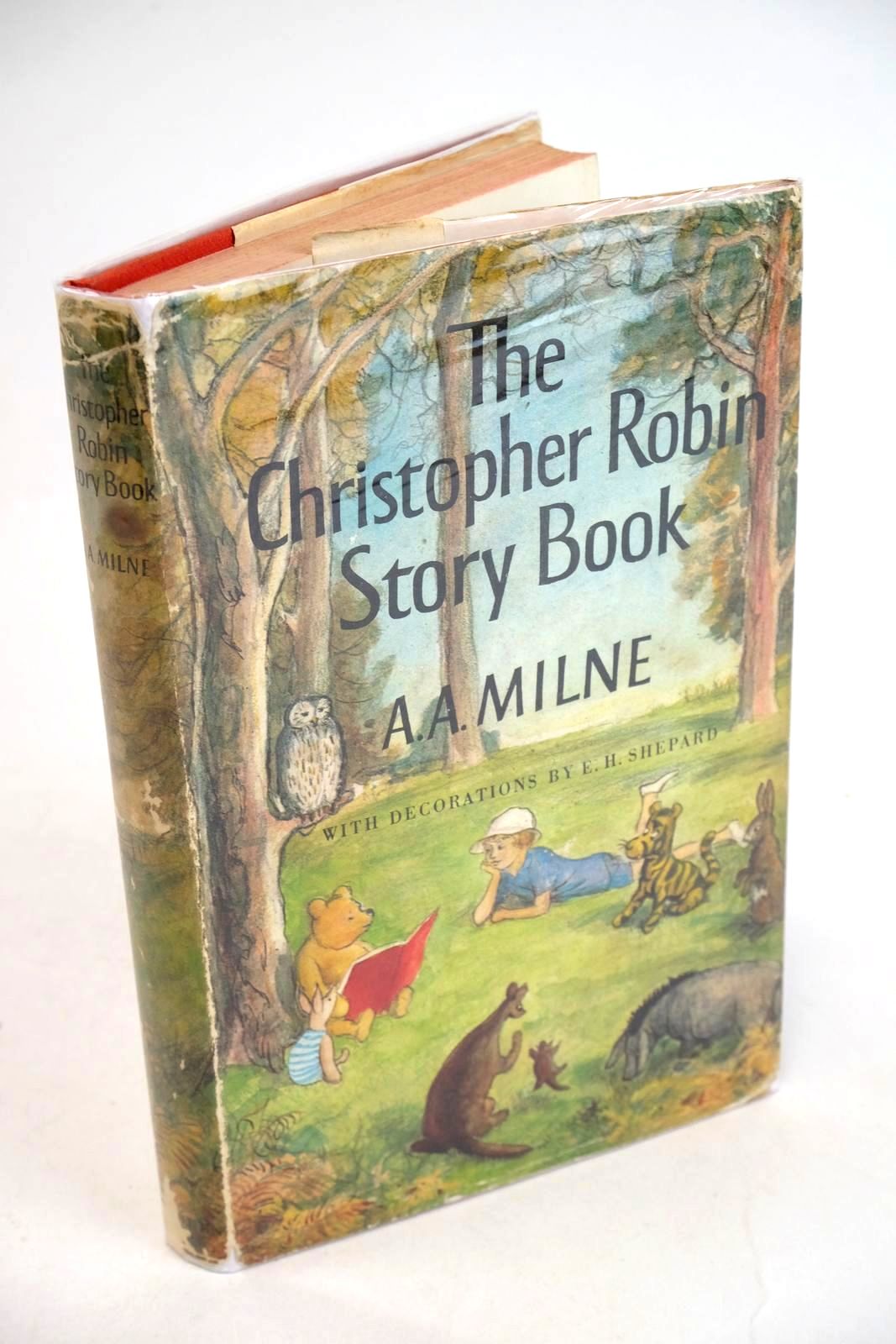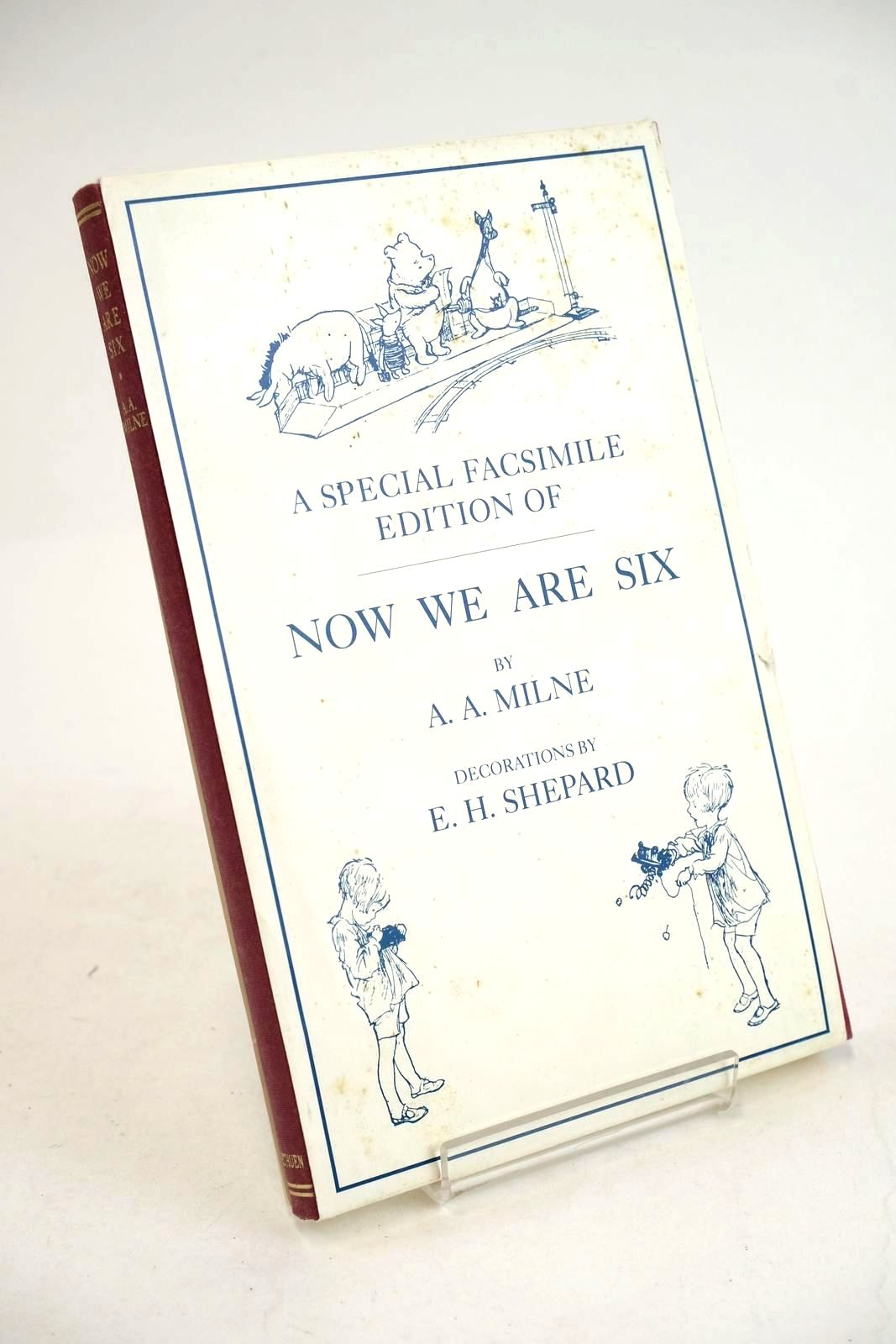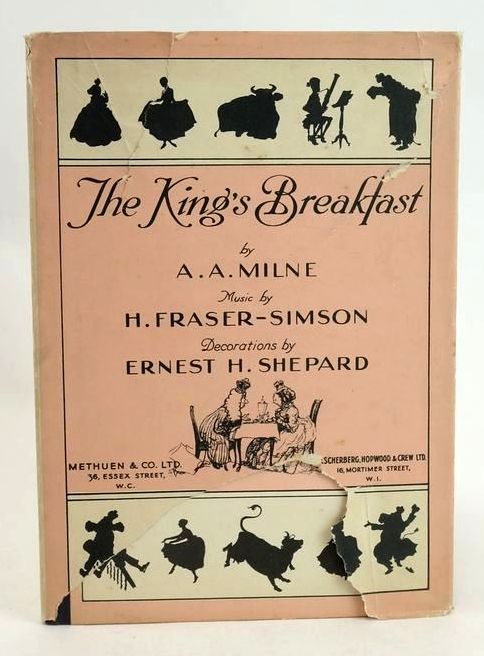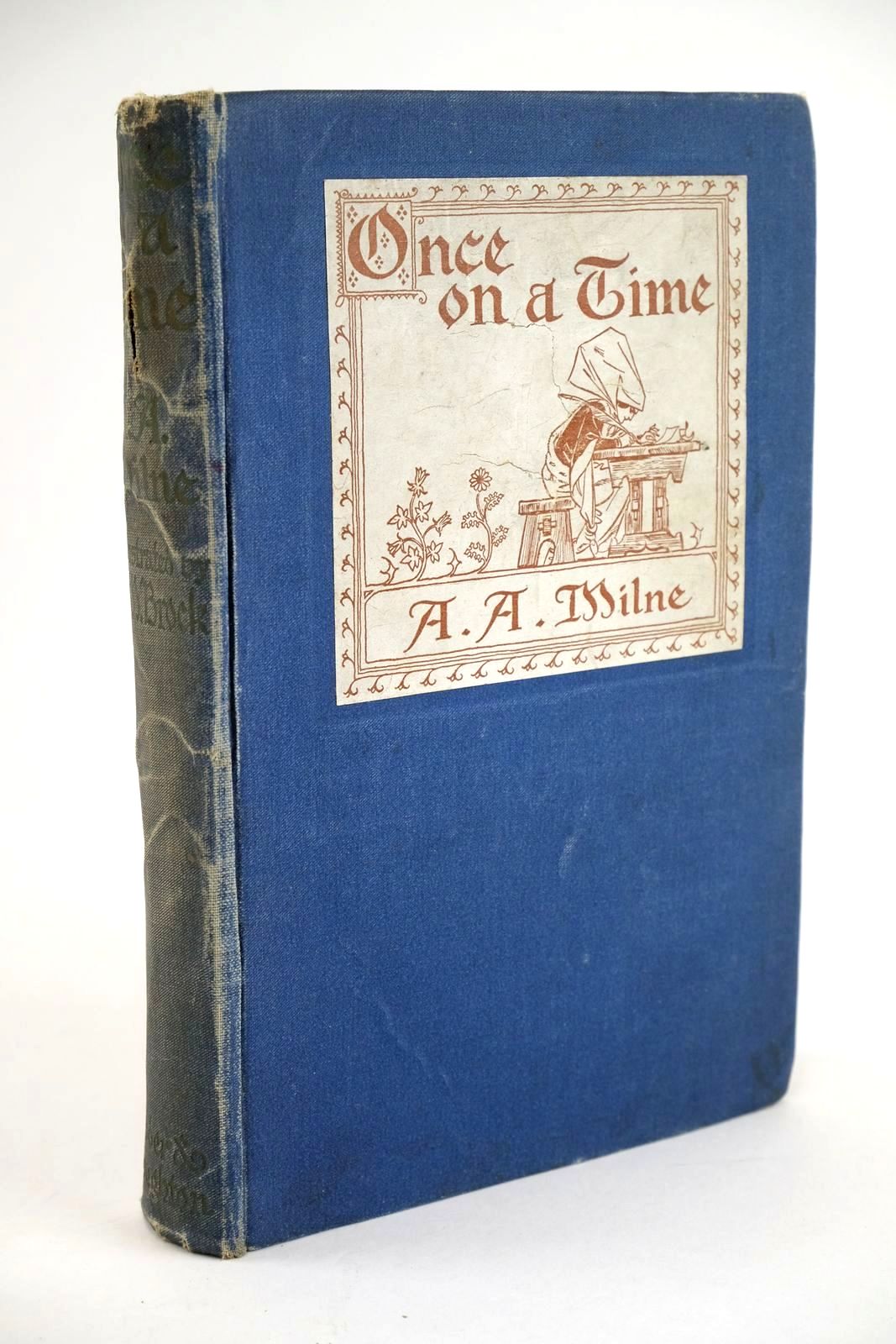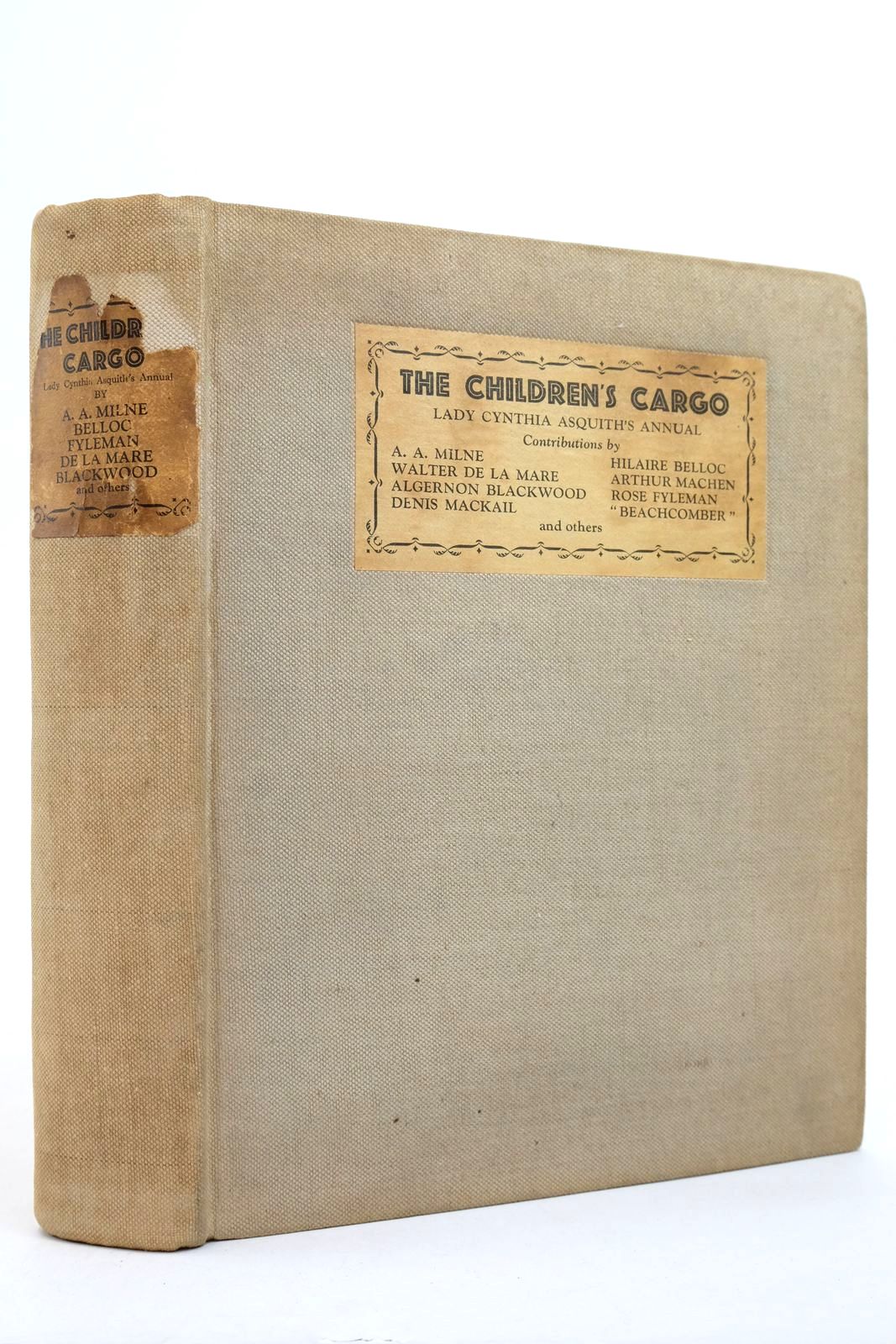A.A. Milne
 Born on the 18th January 1882, Alan Alexander Milne was the third son of J.V. Milne, headmaster of Henley House, private school for boys. At an early age he became an avid reader, even submitting stories and verse to magazines, although none were accepted. Aged 11, he won a scholarship to Westminster School, and in 1900 went to Trinity College Cambridge, to read mathematics. Here he formed a desire to make people smile and laugh, believing that to be serious was not on!
Born on the 18th January 1882, Alan Alexander Milne was the third son of J.V. Milne, headmaster of Henley House, private school for boys. At an early age he became an avid reader, even submitting stories and verse to magazines, although none were accepted. Aged 11, he won a scholarship to Westminster School, and in 1900 went to Trinity College Cambridge, to read mathematics. Here he formed a desire to make people smile and laugh, believing that to be serious was not on!
However in 1902 he became editor of the undergraduate journal Granta, and, after graduating in 1903, began to contribute regularly to Punch where, in 1906, at the age of 24, he was offered the post of Assistant Editor. He wrote witty and humorous articles and the Punch readers loved them, and indeed many other writers tried to copy his style, although never as successfully.
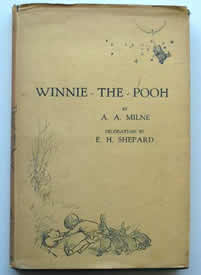
Although he had enjoyed working at Punch, Milne found the weekly routine wearing, and felt that he wanted a change. Two books of his articles had been published and very well received, so he became independent, pursuing a desire to write plays with some success. A career as a dramatist seemed to beckon.
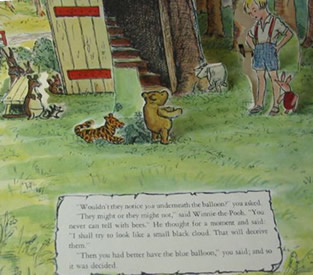
In 1925 the family moved to Cotchford Farm, situated between Tunbridge Wells and East Grinstead, on the edge of Ashdown Forest in Sussex, and it was around here that the "Pooh"stories were based. The farm was fairly isolated and Milne’s son, Christopher Robin, could roam at will. Winnie-The-Pooh first appeared in print in 1925 and in book form in 1926. Its successor The House at Pooh Corner was published in 1928.
 These four books brought Milne worldwide fame, but he began to resent the fact that, although he wanted to move on, his public didn’t. Whatever plays or books he wrote later, and there were many, he never managed to shake those juvenile characters off. As one critic wrote: ‘Milne blamed Pooh for overshadowing his later plays. But Pooh was blameless. Throughout the 1930s he produced nothing to overshadow.’
These four books brought Milne worldwide fame, but he began to resent the fact that, although he wanted to move on, his public didn’t. Whatever plays or books he wrote later, and there were many, he never managed to shake those juvenile characters off. As one critic wrote: ‘Milne blamed Pooh for overshadowing his later plays. But Pooh was blameless. Throughout the 1930s he produced nothing to overshadow.’
There was one play which stood out however. His Toad of Toad Hall was a great success and has subsequently become a Christmas must for children, and adults too. In all Milne wrote some 27 plays, published 2 books of verse and 22 other volumes, together with 4 children’s books.
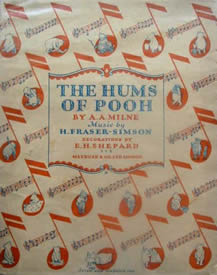
So after all the success, A.A. Milne was dissatisfied with the way things turned out, causing one critic to say:”What does the man want? He has written one of the best and most popular childrens’ books of all time… Is he annoyed because he did not write Shakespeare and Johnson’s Dictionary?”
After a stroke in 1952, which left him wheelchair bound, A.A. Milne died on 31st January, 1956.
Contributed by David
(Published on 1st Dec 2012 )


